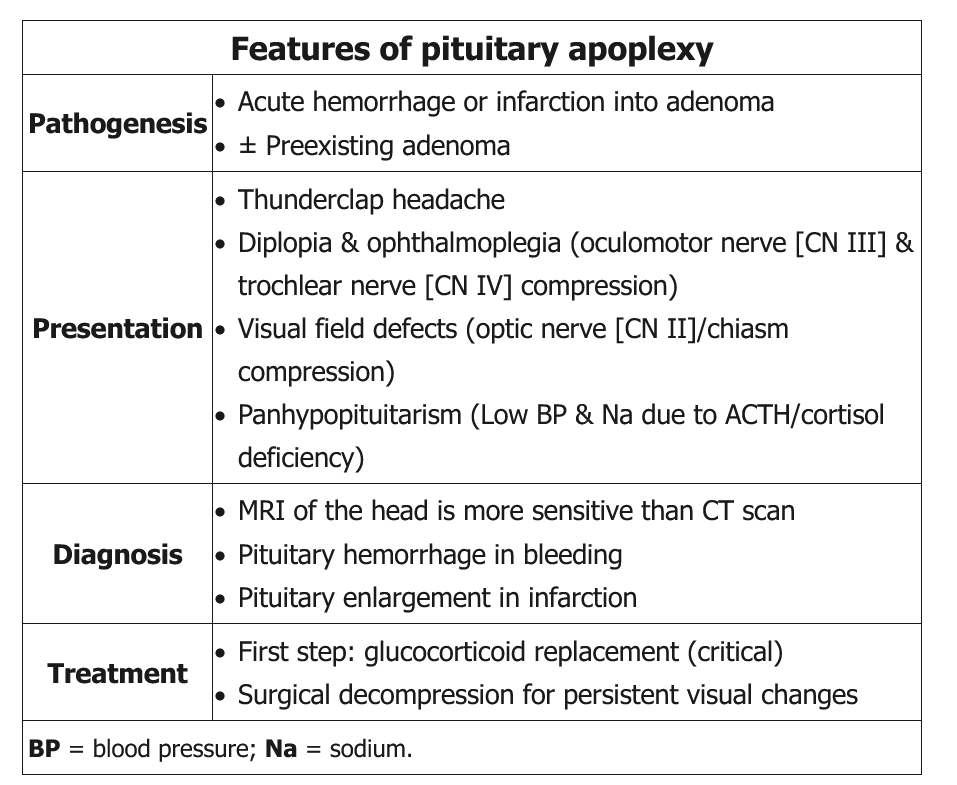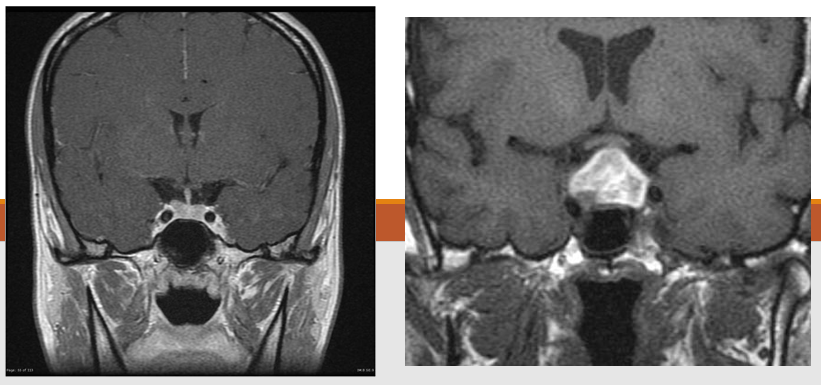pituitary apoplexy
- related: Endocrine
- tags: #note

Symptoms
- nausea, vomiting
- sudden onset, worst headache in life
- eye symptoms: diplopia
- tachycardia, hypotensive
Diagnosis

- normal vs apoplexy
- CT does not diagnose 50% of the time, order MRI head if suspecting apoplexy
Treatment
- neurosurgical and endocrine emergency
- stress dose steroid
Pituitary apoplexy is an endocrine emergency, and the outcome can be catastrophic if it is not diagnosed and treated appropriately. Some patients may develop meningeal signs that may lead to misdiagnosis of subarachnoid hemorrhage or meningitis. Pituitary apoplexy is complicated by acute secondary adrenal deficiency in more than two-thirds of patients, which can be life-threatening and lead to severe, refractory hypotension. This patient has features of adrenal insufficiency and needs immediate high-dose glucocorticoid therapy. Given the frequency of adrenal insufficiency in pituitary apoplexy, empiric glucocorticoid therapy is recommended even in patients without features of adrenal insufficiency.